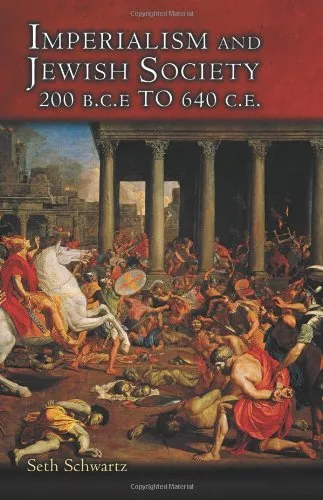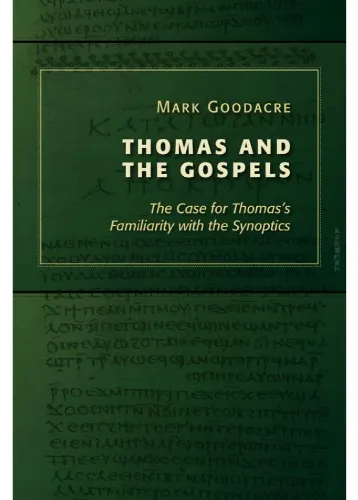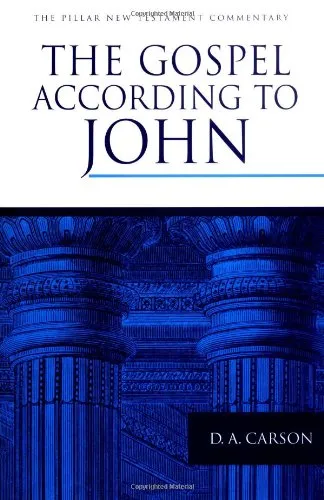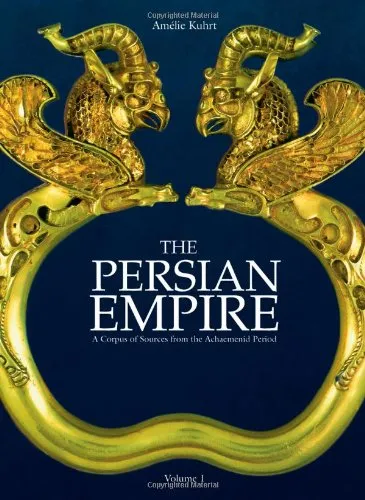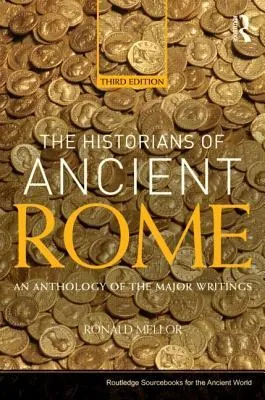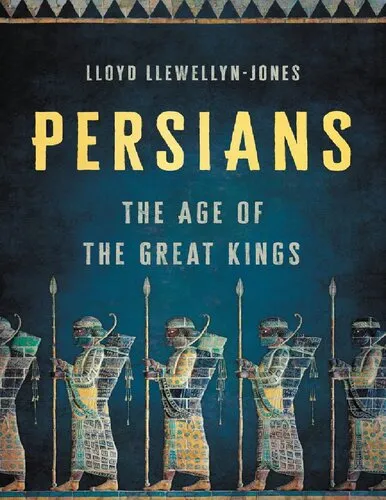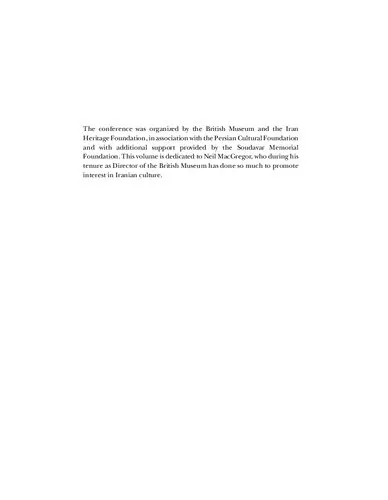Imperialism and Jewish Society: 200 B.C.E. to 640 C.E. (Jews, Christians, and Muslims from the Ancient to the Modern World)
4.5
بر اساس نظر کاربران

شما میتونید سوالاتتون در باره کتاب رو از هوش مصنوعیش بعد از ورود بپرسید
هر دانلود یا پرسش از هوش مصنوعی 2 امتیاز لازم دارد، برای بدست آوردن امتیاز رایگان، به صفحه ی راهنمای امتیازات سر بزنید و یک سری کار ارزشمند انجام بدینکتاب های مرتبط:
معرفی اجمالی کتاب
کتاب "Imperialism and Jewish Society: 200 B.C.E. to 640 C.E." به تحلیل تأثیرات امپریالیسم بر جامعه یهودی از سال ۲۰۰ قبل از میلاد تا ۶۴۰ میلادی میپردازد. این کتاب دورهای بحرانی از تاریخ را پوشش میدهد که در آن یهودیان با تغییرات عمده سیاسی و فرهنگی مواجه بودند. نویسنده، Seth Schwartz، پژوهشگری برجسته در زمینه تاریخ یهود است که با دقت و عمق به بررسی این موضوع پرداخته است.
خلاصهای از کتاب
کتاب در چهار بخش به تحلیل تحولات جامعه یهودی میپردازد. ابتدا به فضای سیاسی و فرهنگی دوره اسکندر مقدونی و جانشینان او اشاره میشود. پس از بررسی تأثیرات امپراتوریهای هلنیستی و روم بر فرهنگ و هویت یهودیان، Schwartz به تحلیل تغییرات اقتصادی و اجتماعی میپردازد که به واسطه سلطهگران خارجی بر یهودیان تحمیل شده است. در نهایت، به نقشی که مسیحیت و ظهور آن در شکلگیری هویت یهودی بازی کرده پرداخته میشود.
نکات کلیدی
- تأثیر عمیق امپراتوری روم بر ساختارهای اجتماعی و فرهنگی یهودیان.
- تغییرات عمدهای که مسیحیت به عنوان یک نیروی نوظهور در جهان باستان موجب شد.
- چالشهای هویتخواهی یهودی در میان مقتضیات سیاسی و مذهبی زمان.
نقلقولهای معروف از کتاب
"یهودیت باستان نه تنها از تمدنهای همسایه خود تأثیر گرفت بلکه توانست با چالشهای داخلی و خارجی به شیوهای خلاقانه مواجه شود."
"در جامعهای که امپریالیسم حاکم بود، یهودیان به جستجوی هویت خود پرداختند و این موضوع به یکی از عوامل عمده بقای طولانیمدت فرهنگ آنان تبدیل شد."
اهمیت این کتاب
این کتاب به دلایلی همچون تحلیل عمیق و همهجانبه تاریخ یهودیان باستان از دیدگاه امپریالیسم، اهمیت زیادی دارد. با بررسی این دوره، خوانندگان میتوانند درک عمیقتری از چگونگی تعامل فرهنگها و تمدنها در شرایط سلطهگری پیدا کنند و همچنین با اثرات طولانیمدت امپریالیسم بر جوامع محلی آشنا شوند. به علاوه، این کتاب به دانشجویان و پژوهشگران حوزه تاریخ، دینیات، و مطالعات فرهنگی ابزارهای مناسبی برای تحلیل روندهای تاریخی ارائه میدهد.
Introduction
Welcome to an intellectual journey through ancient Jewish history, as explored in the book "Imperialism and Jewish Society: 200 B.C.E. to 640 C.E." This study delves into the profound influences of various imperial regimes on Jewish society over several crucial centuries. As part of the esteemed series, "Jews, Christians, and Muslims from the Ancient to the Modern World," this volume offers a comprehensive analysis that is both thought-provoking and enlightening.
Detailed Summary of the Book
The book meticulously charts the evolution of Jewish society under the dominion of empires such as the Persian, Hellenistic, Roman, and Byzantine administrations from 200 B.C.E. to 640 C.E. Seth Schwartz's work advocates that Jewish history during this period cannot be fully understood independent of the imperial contexts in which it existed. The narrative commences with the Persian empire's influence, providing the backdrop for the Hellenistic cultural infiltration.
Schwartz emphasizes the inevitable interaction between Jewish communities and their imperial rulers. The integration into the Roman empire introduced structural and sociopolitical shifts, significantly affecting Jewish religious and social practices. Key events like the destruction of the Second Temple in 70 C.E. were pivotal, altering Judaism's landscape from a temple-centered faith to Rabbinic Judaism.
The book further investigates how these empires affected Jewish identity and practices, juxtaposing continuity against adaptation. Schwartz suggests that Jewish society experienced a degree of cultural and religious integration, yet maintained a distinct identity that would eventually contribute to the survival and transformation of Judaism, especially through the Rabbinic movement.
Key Takeaways
- The book highlights the profound impact of imperial rule on the social, religious, and political structures of Jewish society.
- It emphasizes the dual forces of assimilation and differentiation within Jewish communities under imperial regimes.
- The work illustrates the transformation of Judaism from a temple-based religion to a legal-moral-ethical system through Rabbinic leadership.
- Schwartz offers a new perspective by integrating aspects of political history with cultural and religious transformations.
Famous Quotes from the Book
"Understanding Jewish history requires acknowledging the fundamental impact of external imperial forces that shaped internal dynamics."
"The resilience of Jewish identity lies in its ability to adapt and reinterpret tradition in the face of change."
Why This Book Matters
"Imperialism and Jewish Society: 200 B.C.E. to 640 C.E." is more than a historical recount; it is a critical evaluation of cultural resilience and adaptation. The book is pivotal in understanding not only Jewish history but also offers insights into the broader implications of imperialism on cultural and religious identities. Through this scholarly lens, Schwartz provides readers and historians with a nuanced understanding of how dominant powers impact colonized societies, and the spectrum of responses these societies develop, ranging from resistance to assimilation.
Moreover, the book's integration into the broader narrative of world history makes it a crucial resource for those interested in the intersections of empire, culture, and religion. Through an analytical narrative, Schwartz’s work stands as a testament to the complex dynamics between imperial powers and the societies they govern.
دانلود رایگان مستقیم
شما میتونید سوالاتتون در باره کتاب رو از هوش مصنوعیش بعد از ورود بپرسید
دسترسی به کتابها از طریق پلتفرمهای قانونی و کتابخانههای عمومی نه تنها از حقوق نویسندگان و ناشران حمایت میکند، بلکه به پایداری فرهنگ کتابخوانی نیز کمک میرساند. پیش از دانلود، لحظهای به بررسی این گزینهها فکر کنید.
این کتاب رو در پلتفرم های دیگه ببینید
WorldCat به شما کمک میکنه تا کتاب ها رو در کتابخانه های سراسر دنیا پیدا کنید
امتیازها، نظرات تخصصی و صحبت ها درباره کتاب را در Goodreads ببینید
کتابهای کمیاب یا دست دوم را در AbeBooks پیدا کنید و بخرید
1539
بازدید4.5
امتیاز0
نظر98%
رضایتنظرات:
4.5
بر اساس 0 نظر کاربران
Questions & Answers
Ask questions about this book or help others by answering
No questions yet. Be the first to ask!
